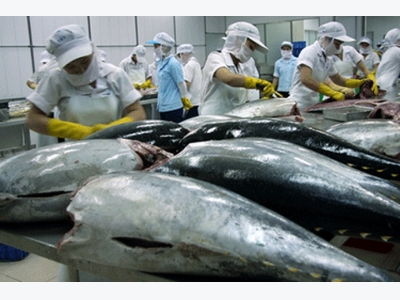Quality key for Vietnam in coming zero-sum game US market

Vietnamese producers must ensure the quality of their produce as the US starts to become a “zero-sum game” of a market, warned consultant Carson Roper.While US consumption of salmon is trending up over the past few years, and still, its seafood consumption is static.
“When the pie isn’t growing, competition for a piece of that pie gets fierce,” he said.
“Focusing on the quality of your offering is key, because if someone else can get one over on you by being better, they will.”A ‘zero-sum game’ is one in which one party can only win to the detriment of others.
He noted Amazon’s recent commitment to lowering prices on salmon and tilapia in Whole Foods, and noted the latter species was advertised on the site as being “not muddy-tasting like pond-raised” fish.
In Europe, meanwhile, Roper noted that consolidation among retailers — for instance the relatively recently-formed Ahold-Delhaize group — meant retail negotiating power was strengthening, and suppliers’ was therefore on the wane.
Có thể bạn quan tâm
 Treatment for water environment using RAS technology
Treatment for water environment using RAS technology By using Recirculating aquaculture system (RAS) for shrimp farming, not only farmers can minimize the risk of disease but also solve environmental pollution.
 Fast water treatment technology boosts efficient shrimp farming
Fast water treatment technology boosts efficient shrimp farming Fast water treatment will ensure a clean environment for shrimp to grow well and be safe from diseases thus improve economic efficiency for the aquaculture
 New generation shrimp farming conquers the fastidious market
New generation shrimp farming conquers the fastidious market With advanced technology, the shrimp raised at Viet Uc Phu My Co., Ltd yielded high productivity, offer clean foods from pond to table
 Top tips for setting up a shrimp farm in the US
Top tips for setting up a shrimp farm in the US The growing interest in aquaculture as a means of producing high-quality, fresh, never-frozen marine shrimp led to a new publication written
 Shrimp feeds of the future
Shrimp feeds of the future A review of the latest scientific studies by Alune* suggests that fish meal inclusion in shrimp feeds can be significantly reduced, offering hope